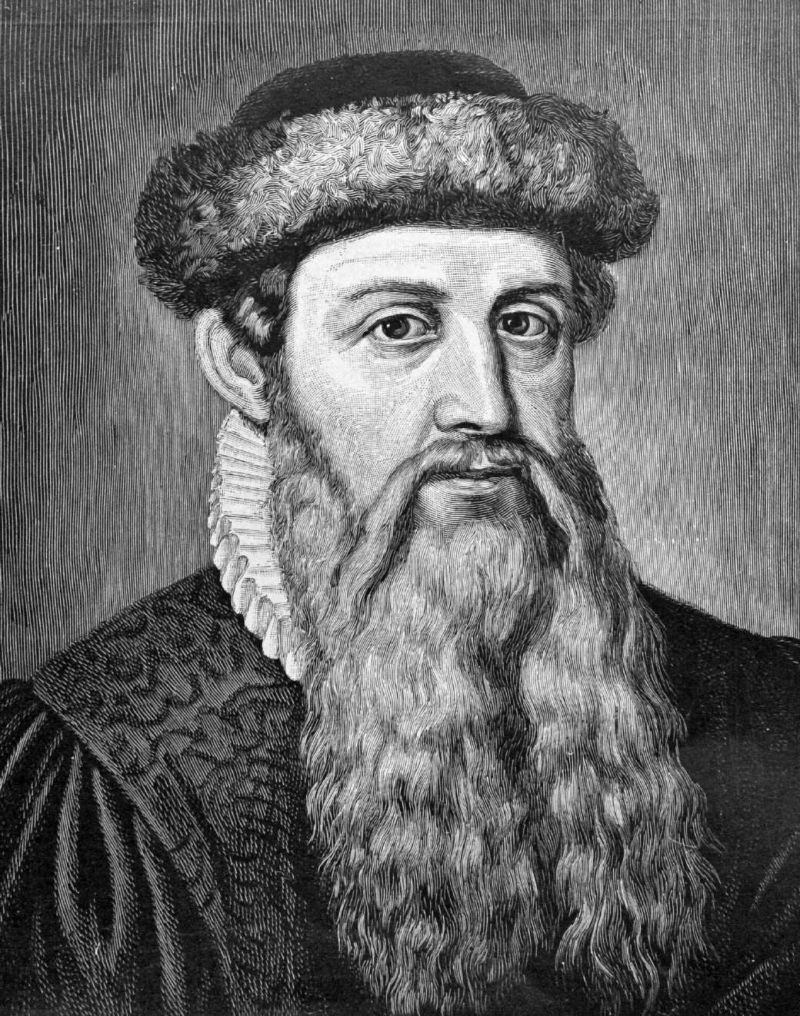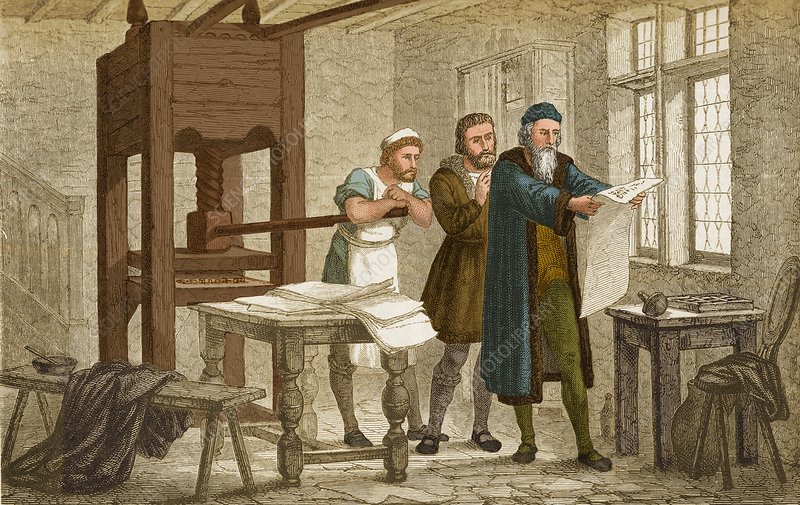Johannes Gutenberg

Johannes Gutenberg was a German printer. In Europe, he was the first to invent the mechanical printing press. Gutenberg's work was a millennium milestone, ushering in the modern age of human history and launching the European Printing Revolution. Because it made books widely available and ushered in a "information revolution," Gutenberg's printing press was a watershed moment in history.
He developed a metal alloy that could melt and cool quickly to make a robust, reusable type, as well as an oil-based ink thick enough to cling to metal type and transfer effectively to vellum or paper, and a new press. This is assumed to have been one among the components of his invention, and was likely derived from those used in the manufacturing of wine, oil, or paper. At the time, neither the European technology for stamping letters on various surfaces nor woodblock printing had any of these features.
- Born: c. 1400Mainz, Electorate of Mainz, Holy Roman Empire
- Died: 3 February 1468 (aged about 68)Mainz, Electorate of Mainz, Holy Roman Empire











